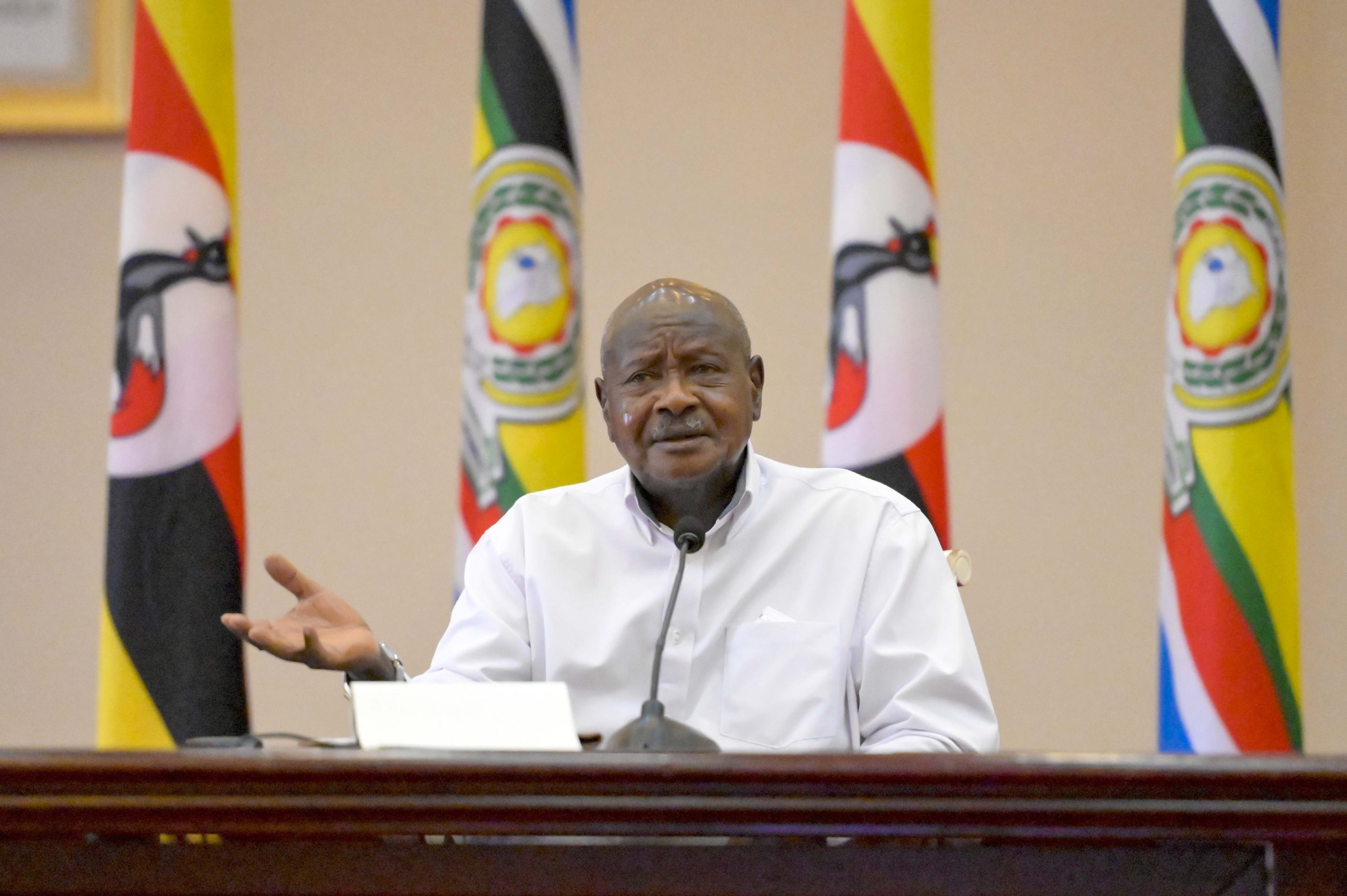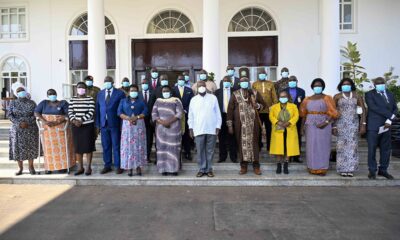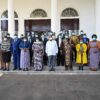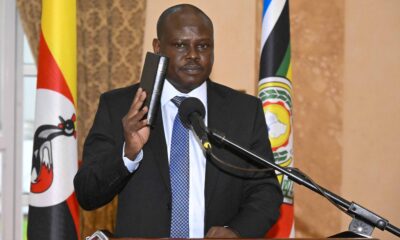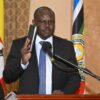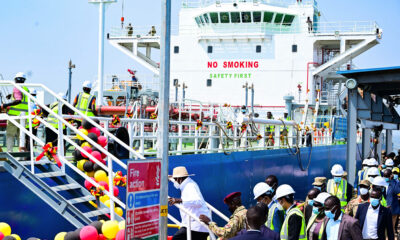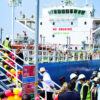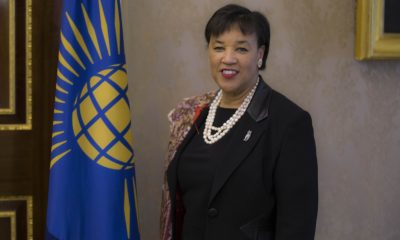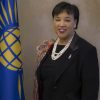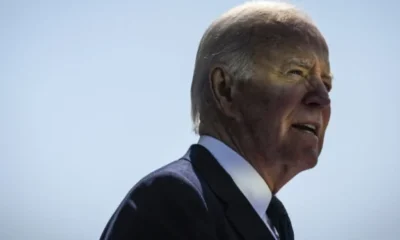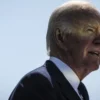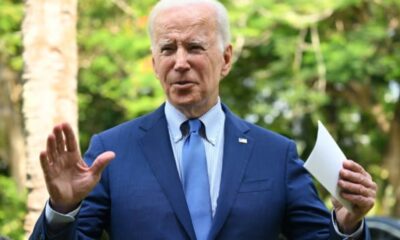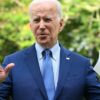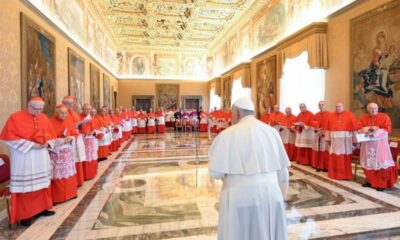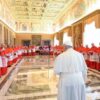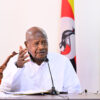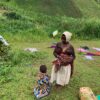International News
President Museveni warns against misuse of identity in the Sudan crisis
Ugandan President, H.E Yoweri Kaguta Museveni, has condemned the ongoing violence in Sudan, stating that it is unacceptable for leaders to continue making ideological and strategic mistakes at the expense of their citizens.
Speaking during a virtual meeting of IGAD Heads of State and Heads of Government, Museveni said that leaders must have principled politics and not fight for opportunistic causes.
“Therefore, it is not correct to go on papering over mistakes, year after year and decade after decade; and the ordinary people suffer so much, on account of the ideological, strategic and political mistakes of leaders. We must be frank. I told them when I was last in Khartoum and I had to learn some words in Arabic. I learnt that identity is called huia and interests is called (masilaha/ihtimaamaat),” said Museveni.
Adding that; “What are you looking for? Are you looking for the interests of the people or, are you just manipulating identity for opportunistic political aims? We must have principled politics. Even when you are to fight, you must fight for a principled cause. Don’t fight for just opportunistic causes.”
Museveni said that the issue of the speed of integration can be determined scientifically and called on leaders to solve the issue of health, age, and education, as this cannot be a problem of principle that causes war.
He urged leaders to consider the consequences of their actions, stating that wars not only kill people but also kill the future of people and their opportunities.
Full Speech
Your Excellencies, The Heads of State and Heads of Government of IGAD; The Executive Secretary.
I thank the Executive Secretary for calling this emergency Meeting of the IGAD Heads of State.
When I last visited Khartoum on 5th August 2018, and in all the other meetings before, like the one of Naivasha and so on, I always told the Sudanese about the dangers of ideological and strategic mistakes. We used to discuss with Gen. Bashir the dangers of encouraging the ideology and politics of the identity of tribes, the identity of race; Arabs-Africans; the identity of religion; Muslim-Christian.
I used to tell Gen. Bashir that this is very dangerous for that Country and indeed, eventually, the country broke up into North and South. Even now, within the North, you still see some of these problems. Therefore, it is not correct to go on papering over mistakes, year after year and decade after decade; and the ordinary people suffer so much, on account of the ideological, strategic and political mistakes of leaders.
We must be frank. I told them when I was last in Khartoum and I had to learn some words in Arabic. I learnt that identity is called huia and interests is called (masilaha/ihtimaamaat). What are you looking for? Are you looking for the interests of the people or, are you just manipulating identity for opportunistic political aims? We must have principled politics.
Even when you are to fight, you must fight for a principled cause. Don’t fight for just opportunistic causes. Therefore, I really condemn all this misuse of force in a situation which needs dialogue. I have told some people before that violence is like a doctor.
A doctor can use different methods of treating patients. He can use medicine; but, he can also use surgery. Surgery is the extreme form of trying to correct a sickness. You cannot start operating on somebody because he has got malaria and start cutting him up when you can use other methods. I don’t even know the nature of the present politics involved because, in the past, we had mishandling of the issue of identity in the form of Arabs versus Africans; Islam versus Christianity.
I don’t know what the issue is this time between the two groups. Whenever I get a chance, that is what I tell the Sudanese leaders. That is what I also told them on 10th October 2016, in a big meeting in Khartoum, when I was there. That is the first point.
The second point is that, apparently, according to the Executive Secretary, all other issues had been solved, except the issue of the speed of integration of the Rapid Support Forces. This is, again, an issue of principle because you must understand what determines the integration of these groups. We have got a long experience of doing all this.
For people to be integrated into a national force, first of all, they must be healthy; in some cases, they insist on education and in others they don’t; the time for training. This can be determined scientifically. We did it in Uganda when we got rid of Idi Amin in 1979.
We had different groups and we worked with the Tanzanians. Our elder, Mwalimu Nyerere of Tanzania, helped us to convert guerilla groups into a professional army. It is determinable; you can determine the timetable because it depends on the speed of the training of some core elements. If people don’t have hidden agendas, this cannot be a problem of principle that causes war.
We must discover who is pursuing illegitimate aims in the Sudan situation- aims which are not principled. Who is it? We can’t just go on papering over issues when people are dying. These wars don’t only kill people. They also kill the future of the people. You find that someone has built up a small business in Khartoum or Kampala and then you start a war! What happens to his business?
Are you going to compensate him or he is going to start afresh when he had already built up some capacity? Therefore, these wars not only kill people but also kill the future of people, the opportunities.
My second point is that this issue of the speed of integration can be determined scientifically because we know what is required to go from a militia to a professional army. We don’t need so many months to do it because we know what is required. You must solve the issue of health. They must be healthy.
There is the issue of age. Some are too old. In some cases, they use education and in some, they don’t. That is a political decision. Why should this be such a big issue and cause people to die? This is really unprincipled. It is wrong! The third issue is that, even if you want to fight, where do you fight? How can you fight in a populated city like Khartoum or Kampala or Mogadishu? This is what I told Gen. Aidid when I visited Mogadishu many years ago.
My question to Gen. Aidid was: “Why did you come to attack Mogadishu when you were not ready?” When you attack a town, you do so in order to overrun it in a fairly short time, which is part of the strategic decisions. But to have a protracted battle in a populated city is really the height of irresponsibility. That is what I told Gen. Aidid.
He was on one side of Mogadishu and on the other side, there was Al Hamad, for months and years. This is very irresponsible, in my opinion. Therefore, the fighting in the populated areas is really something that must stop immediately.
The fourth point concerns what I asked Gen. Burhan when he came here. I asked him: “When are you having elections?” Because, really, that is the medicine for political issues. The country does not belong to the Sudan Army and neither to the Rapid Support Forces. It belongs to the people of Sudan. There are 45 million people.
If you have a political dispute, why don’t you ask them to help you resolve it because this is their country? According to the agreement between the two groups, when were they planning to have elections? Because, again, that is another mistake. When we got independence, after chasing the Europeans, the idea was that we should govern ourselves – not being governed by the army or that group but by ourselves, the people and there should be a programme.
Every so often, we go for elections. Whenever there are disputes in some countries, even midterm, for instance, in the UK, if the Prime Minister loses confidence in Parliament, they go for elections. The people are there; they can arbitrate. Therefore, I would like to know from those who are involved in all this.
What happened to the owners of the country, the Sudanese? When will they come in to arbitrate this power struggle? To say that: “You are right and the other one is wrong.” Because that is what the election is about. Finally, regarding the idea of a high-level delegation, I support it. But, I also support immediate ceasefire and disengagement of forces. There should be no renewed fighting in that town.
These other issues can be handled, and the high-level delegation will assist in contributing ideas so that we stop this tragedy and mockery of African independence. Our elders were fighting for independence for a better future and not for endless mishandling of the people’s affairs.
I thank you so much for calling the meeting.


